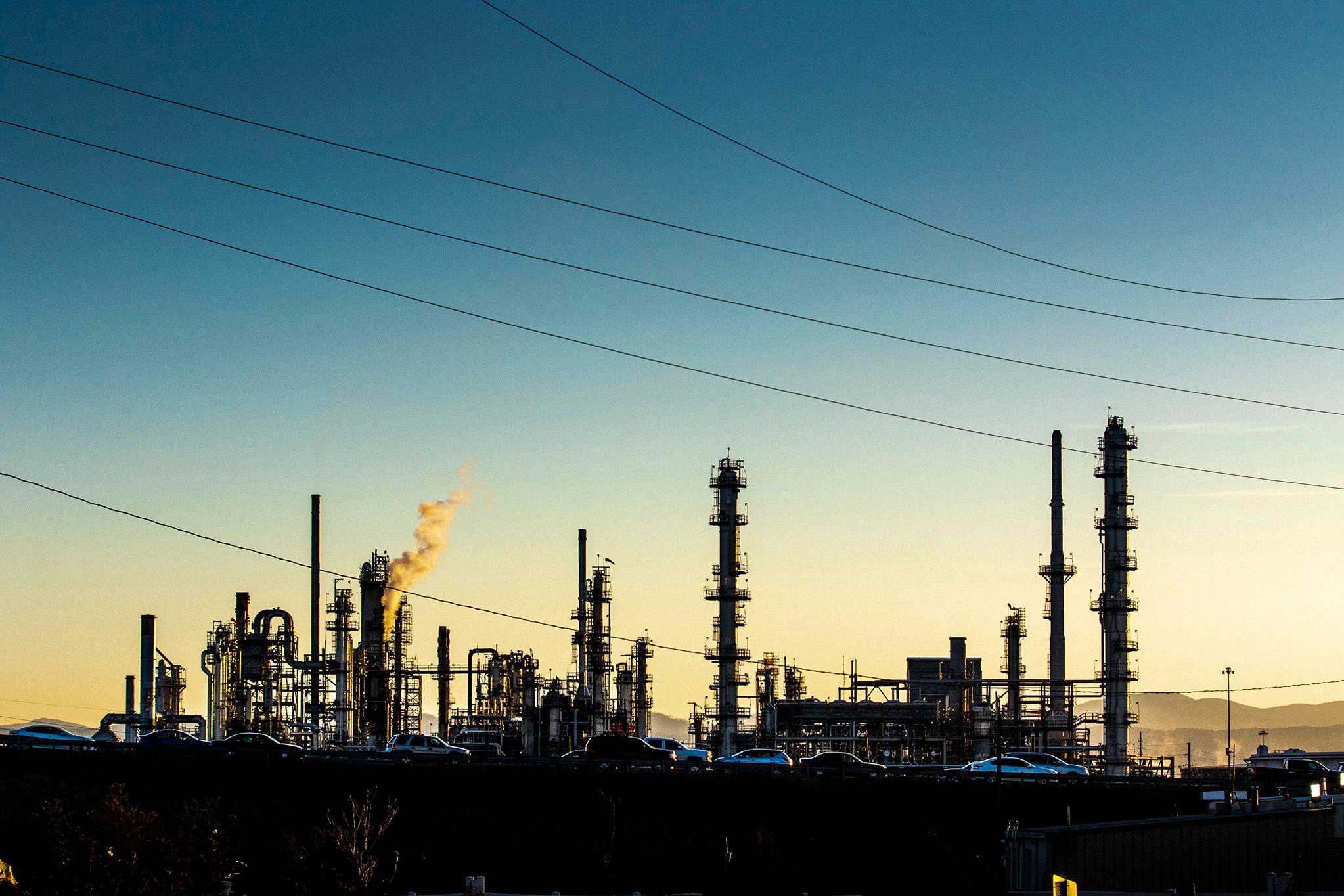
Colorado air regulators are unsatisfied with a Suncor Energy plan to monitor pollution around its Commerce City refinery.
On Thursday, the Colorado Air Pollution Control Division announced it had demanded the Canadian oil and gas company revamp its plans for a legally required fenceline monitoring network. The agency will require the company to install additional 24-hour air sensors, lower the levels of pollution necessary to trigger emergency notifications and more frequently update a public website showing air monitoring results.
Division director Michael Ogletree said the changes would more than double the cost of the system to $25 million from about $10 million. Suncor Energy, which earned $3.1 billion in profit last quarter, will cover the cost.
A 2021 state law requires Suncor to install air sensors on a 3.4-mile perimeter around the facility. The system must watch for benzene, hydrogen sulfide and hydrogen cyanide. All are byproducts of the oil and gas refining process, and all can be dangerous depending on the severity and duration of exposure.
"The submitted plan met the bare minimum of what was required by the legislation. These changes will ensure the plan meets community concerns as well as the more stringent approach the division is taking with Suncor," Ogletree said.
The Colorado Department of Public Health and the Environment’s Air Pollution Control Division held a pair of public meetings last March on the initial monitoring plan, which Suncor submitted to the state in December 2021. Ogletree said community input helped the division decide to force the company to report on 11 additional air toxins in addition to the three chemicals required under the original legislation.
The division will require other changes focused on the specific air monitoring equipment, Ogletree said. Suncor officials originally proposed using use pivoting air monitors that rotate to sample pollution from different wind directions.
State regulators worried the system could miss emissions depending on the orientation of the sensors and determined the plan failed to meet a legal requirement for "continuous" air monitoring, Ogletree said. The state will instead require the company to install fixed monitors and double the number of sensors.
In the event air pollution spikes near the refinery, Suncor must alert its neighbors by email and text message. The division plans to set lower thresholds for sending those emergency notifications than what was originally proposed by Suncor. In addition, anyone worried about even smaller pollution spikes — small enough to fall below EPA thresholds for unsafe exposures — can sign up for additional notifications.
Renee Millard-Chacon, an environmental justice organizer who lives less than two miles from the Commerce City refinery, said she was pleasantly surprised by the changes demanded by the state.
"Honestly, that all sounds great. It's a step in the right direction that's long overdue, but the question now is how is that going to lead to enforceable regulations with real teeth?"
The state-mandated fenceline system will be added atop a network Suncor voluntarily built last summer, which includes 10 air monitors less than three miles from the refinery. Cultivando, a health and environmental nonprofit in Commerce City, operates an independent monitoring station and a mobile data-collection van.
Suncor spokesperson Amy Fidelis said the company supports air monitoring but would not comment on specific changes demanded by regulators.
"The refinery has received the Colorado Department of Health and Environment’s feedback on its fenceline monitoring plan and is in the process of reviewing it," Fidelis said.









